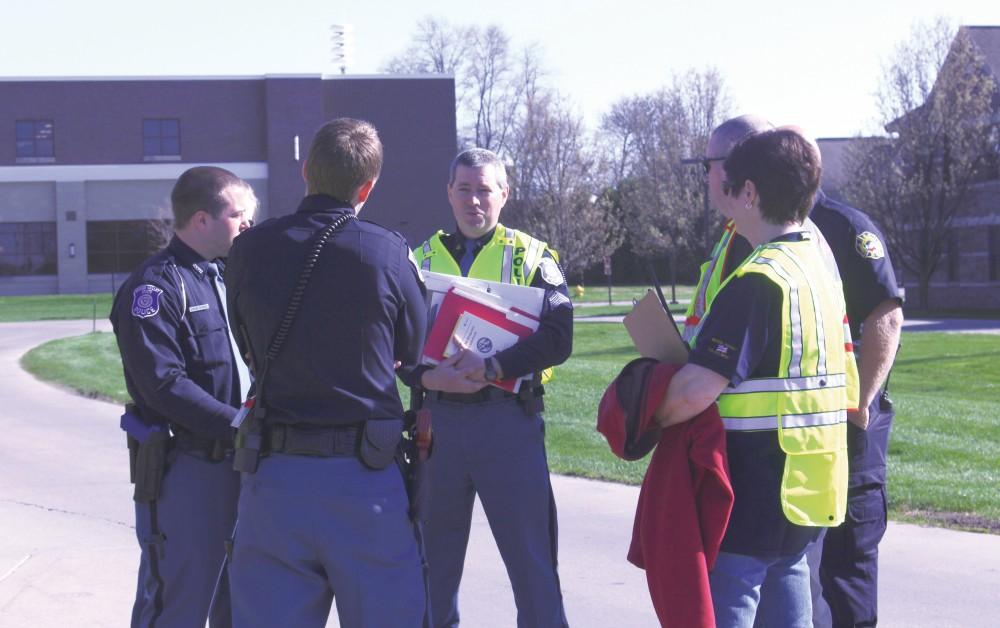GVSU Police Academy first in Michigan to offer program to veterans

GVL/Audra Gamble Eleven different emergency response teams practice a radiology drill Tuesday, April 18, 2015 at Grand Valley State University’s Allendale Campus. The drills tooks place within North B living center near the entrance to campus.
Jul 13, 2015
For the third year in a row, the Military Police Basic Training Program was offered to military veterans at Grand Valley State University’s police academy for summer 2015.
The MPBTP, a condensed law enforcement program aimed exclusively for military police personnel, is a seven-week program offered from June 22 to Aug. 7.
Williamson Wallace, the director of criminal justice training at the police academy, said GVSU is the only academy out of the 17 regional academies in Michigan to provide military police personnel with this program.
“This is the third year we are running what we would like to call the Military Police Training Program here at Grand Valley,” Wallace said. “We are one of two programs in the country. Currently GVSU is the only institution in the state of Michigan that offers it.”
In February 2013, The Michigan Commission on Law Enforcement Standards (MCOLES) approved two training sites at GVSU and Kirtland Community College, which only GVSU is operating in 2015. MCOLES has several requirements for the program, one of which is a minimum of 2,080 hours in a specified law enforcement occupation.
“If an individual was a police officer in the military, there’s requirements for how much service they need until they are eligible,” Wallace said. “Basically the idea is for these individuals to get caught up on all of the Michigan-specific information before they sit for their licensing exam.”
Capt. Brandon DeHaan of the GVSU police department said the MPBTP is based under the premises that individuals in the armed forces have already gone through extensive law enforcement training.
“What the state of Michigan has identified is that if those individuals wish to become officials in a civilian role,” he said, “they still need to have a certain amount of training that separates them from the military.”
DeHaan said that GVPD assists with the MPBTP, along with providing professional educators to the full 16-week program at the academy. Additionally, 95 percent of the educators are active or former law enforcement officers.
“There’s a lot of value to the academy, it provides an excellent education with these programs, specifically for those going into law enforcement.” DeHaan said. “The academy has been very beneficial to the police department and we have a great partnership.”
Wallace said MCOLES requires individuals in the MPBTP to complete 280 hours of training in order to sit for the licensing exam. He said the full 16-week program is delivering 683 hours for 2015, but MCOLES only requires 194 of those hours.
“The state of Michigan has a mandatory curriculum,” Wallace said. “Grand Valley goes above and beyond those requirements. The academy provides those mandatory hours along with some additional segments.”
Wallace said the academy also provides additional training in areas not covered as often in law enforcement, such as active shooter response training and guidance on how to survive stressors of a law enforcement career.
“The police academy has been deeply rooted into Grand Valley since 1974,” he said. “We provide that community partnership and well-educated individuals that hopefully will be able to have a fulfilling career in law enforcement.”
For more information on the MPBTP and the police academy visit, www.gvsu.edu/cj/policeacademy/.























